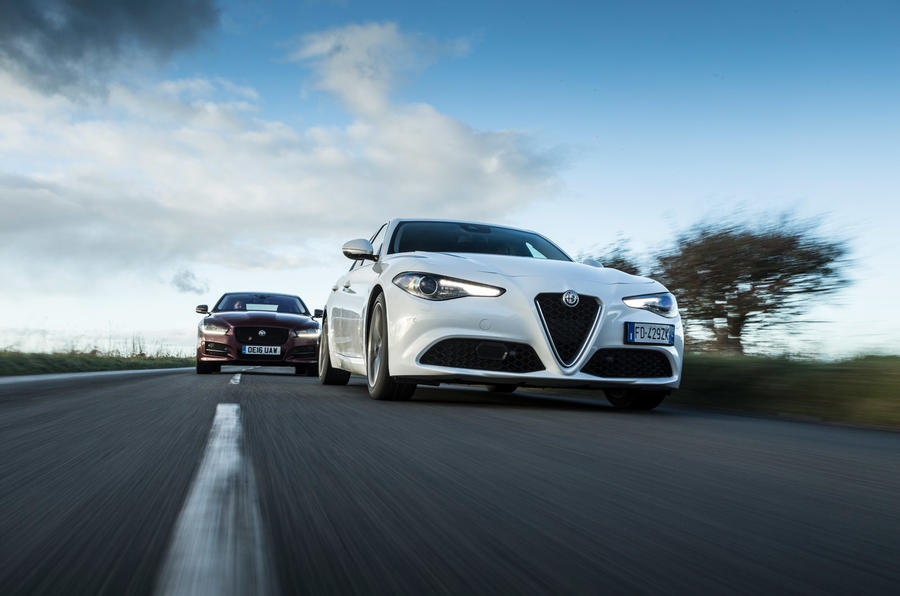Electrification, connectivity, autonomy, fast-moving start-up companies, a global pandemic, Brexit, semiconductor shortages, changing consumer habits, new retail models, a Suez Canal blockage… The list of short- and long-term challenges facing the car industry today is extensive, occasionally bordering on farcical and for some potentially ruinous. Who is in trouble? Here are five that we rate as being on the edge.
Jaguar currently has a goal with no visible plan. Its boldness in going all-electric by 2025 hints at a last roll of the dice after it sold fewer cars (102,494) last year than BMW sold 3 Series in Europe (118,369). Of course, that its leadership has revealed a goal suggests a plan is coming together. An EV platform share of some kind seems likely, potentially with a Chinese firm, but the execution must be brilliant if Jag is to thrive.
Alfa Romeo has probably never been scrutinised by leadership as clinical as that at the top of Stellantis. Its performance was dire last year: 35,718 new cars sold in Europe and 18,586 in the US. Ongoing losses won’t be tolerated, and already ruthless decisions are being made. For example, the £1bn Giorgio platform that underpins the slow-selling Giulia saloon and Alfa Romeo Stelvio SUV is soon to be canned. In will come a group-shared platform, which will be an obvious cost saving, but is it enough to save Alfa Romeo?
Without the heritage or allure of Alfa Romeo but with the established advantages of being part of a successful group (first PSA and now Stellantis), France’s DS is still struggling to secure global traction. Its new 9 saloon will add allure in Asia, where sales have collapsed, but a sales total in Europe of just 43,686 last year points to deeper issues.
Smart should be ideally placed to thrive in a world focused on easing emissions and congestion. Its owner, Daimler, last year entered a 50:50 joint venture with Geely in a bid to limit its exposure and kick start sales in China, but with its electric small SUV still a year away and its current cars largely unloved, success – now close to 30 years in the making – feels as far away as ever.
Lamborghini’s profits were at record levels last year as people spent more on fewer cars, while the Lamborghini Urus SUV has diversified its customer base, yet rumours that the Volkswagen Group wants to sell it persist. Why? Is it because the levels of investment required for it to transition into the new world and the challenge posed by EV upstarts (such as Rimac and Nio) are simply too great?
READ MORE
Dealer boss on the post-pandemic future for car sales
Volkswagen Group brands reveal pandemic impact on 2020 sales





Join the debate
Add your comment
"Why discard Alfa's Giorgio platform after spending £1bn on it when it's apparently so good? Even if the Alfa is discontinued, shouldn't this platform be used for some of the other marques?"
its not discarded, new Maserati grecale for instance uses it, also new EV platfom will use this as base.
"Alfa’s problems prove Jaguar can be turned around but they must run from the bottom end of the premium market and focus on the middle, just like Porsche. Alfa on the other hand have mega problems."
Alfa has mega problems because bad leadership (Mr Manley), all investments were transferred to Maserati models. You cant hope much more with 2 model lineup which dont get even updates.
"Alfa Romeos numbers are even worse than Jaguar's. The Jaguar F Pace sold around 45,000 cars alone last year. "
lol not big surprise if Alfa has 2 model lineup versus Jags 6 model lineup, not really comparable in anyway